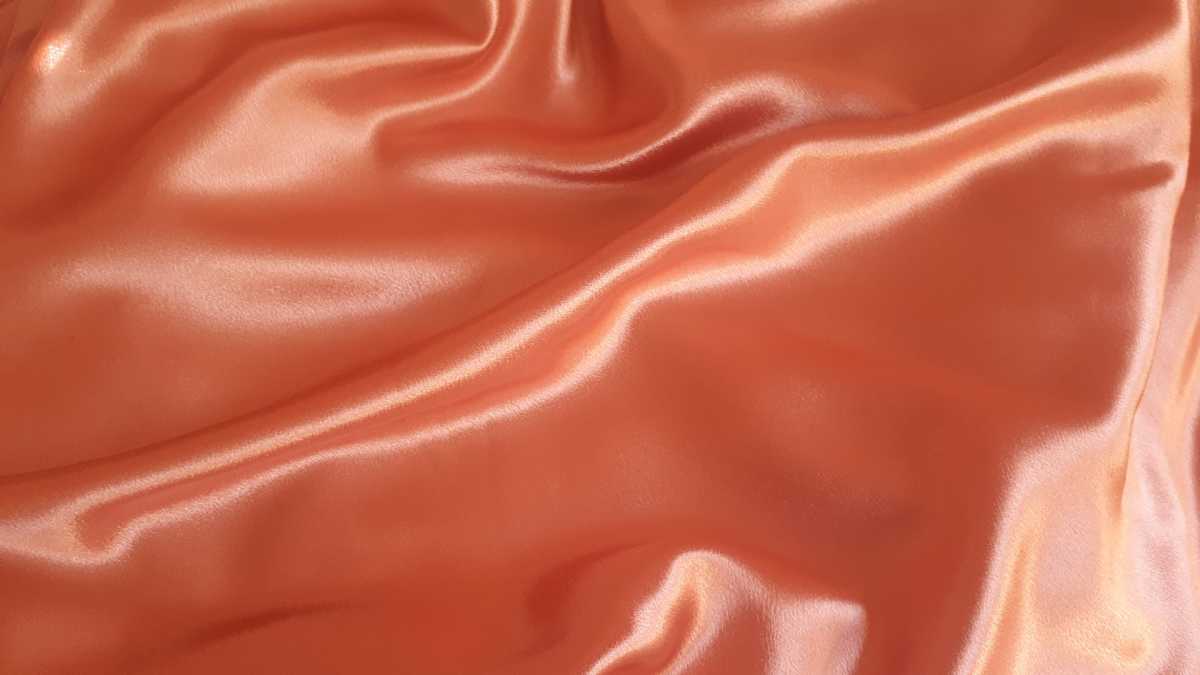Polyester is a synthetic fabric made from petroleum-based products. It’s often used in clothing because it’s affordable and easy to care for. Polyester is also resistant to shrinking, stretching, and wrinkles.
However, one downside of polyester is that it can fade in the sun. The sun’s ultraviolet (UV) rays can break down the fibers in polyester, causing the fabric to lose its color.
Does Polyester Really Fade in the Sun? We Did a Little Experiment to Find Out

In the summertime, we all want to wear our cute sundresses and shorts. But one thing that always holds us back is the fear of our clothes fading in the sun. No one wants their clothes to lose their color after just a few wears. So, does polyester really fade in the sun? We did a little experiment to find out!
We took three identical white shirts made from 100% polyester and hung them outside on a sunny day. After four hours, we took them down and compared them. The results were pretty interesting!
The first shirt showed very little signs of fading. There was a very slight change in color, but it was hardly noticeable. The second shirt also showed only a slight change in color. However, there were some areas that looked a bit discolored. The third shirt had the most noticeable changes. It was significantly lighter than the other two shirts and had quite a few areas that looked blotchy and discolored.
Conclusion:
So, does polyester really fade in the sun? Yes, it does! However, it doesn’t seem to fade as quickly as other fabrics such as cotton. If you’re worried about your clothes fading in the sun, polyester is a good fabric to choose. Just be sure to hang it up out of direct sunlight when you’re not wearing it!
The Different Types of Polyester
Polyester is a synthetic fabric made from petroleum-based products. It’s often used in clothing because it’s affordable and easy to care for. Polyester is also resistant to shrinking, stretching, and wrinkles.
There are two main types of polyester: textured polyester and microfiber polyester. Textured polyester is often used in sportswear and outerwear because it’s durable and can wick away moisture. Microfiber polyester is often used in delicate garments like underwear and nightwear because it’s soft and gentle on the skin.
Alternatives to Polyester Clothing
Choose Darker Colors
If you’re going to be spending time in the sun, it’s best to avoid light-colored clothing, as these are more likely to fade. Instead, opt for darker colors, such as black, navy, or dark green.
These colors will absorb more light and help protect your clothes from fading. You should also avoid clothing made from natural fibers, such as cotton or linen, as these are more susceptible to damage from UV rays.
Polyester is a versatile fabric that has many benefits, but it can fade in the sun if you’re not careful. To prevent this from happening, choose darker-colored clothing.
To Prevent your Polyester clothing from Fading in the Sun, you can:
So what can you do to prevent fading? First, avoid washing your polyester clothes too often. Washing not only removes sweat and body oils from fabric- it also strips away any treatments that have been applied to the garment (more on that later). Second, always wash polyester clothes in cold water using a mild detergent. Hot water can cause polyester fabrics to shrink, while harsh detergents can damage the fibers and accelerate fading. Third, if possible, air dry your clothes instead of putting them in the dryer. The high heat of most clothes dryers can cause polyester fabrics to warp and discolor. If you must use a dryer, set it to the lowest heat setting possible.
Finally, there are a few things you can add to your laundry routine that will help protect your clothes against fading. Fabric softener helps keep color from bleeding during washing, while vinegar acts as a natural fabric brightener (just be sure not add too much vinegar or your clothes will start to smell!). You can also buy color-safe bleach specifically designed for use on synthetic fabrics like polyester. Just be sure to follow the instructions on the package carefully so you don’t damage your clothes!
Fading is one of the most frustrating things that can happen to our clothing- but it doesn’t have to be permanent! With a little care and attention, you can keep your polyester garments looking vibrant for years to come. Just remember to avoid exposing them to direct sunlight or high temperatures whenever possible, and always wash them in cold water using a mild detergent
Quick Overview !
- -Wash it in cool water with a mild detergent
- -Hang it in the shade to dry
- -Turn it inside out before you hang it out to dry
- -Use a laundry additive like color guard or UV protect
- -Cover it with a garment bag or piece of cloth when you’re not wearing it
The Truth about Polyester- Will it Fade when Washed?
You’ve probably heard the claim before – polyester doesn’t fade when washed. But is it really true? Today, we’re setting the record straight on this fabric’s much-debated fade factor.
Here’s the thing about polyester – it’s a man-made fabric, which means it’s made of synthetic fibers. And what do synthetic fibers do? They resist fading! That’s because synthetic fibers are dyed before they’re turned into fabric, so the color is locked in from the start.
Compare that to natural fibers like cotton and linen, which are dyed after they’re woven into fabric. Because natural fibers are more porous, they tend to absorb dyes more readily, which can lead to fading over time – especially if the fabric isn’t treated properly during washing and drying.
So, what’s the best way to care for your polyester clothes? Well, you can machine wash them on a cool setting with like colors. And when it comes to drying, we recommend air drying or tumble drying on low heat. By following these simple tips, you can help keep your polyester clothes looking vibrant wash after wash.
How to Fade Polyester Fabric ?
To fade polyester fabric, you will need:
- A bucket
- Water
- Bleach
- Rubber gloves
- 1. Fill your bucket with water. Add enough bleach to the water to create a 1:10 ratio of bleach to water.
- 2. Put on your rubber gloves and submerge the polyester fabric in the bleaching solution.
- 3. Let the fabric soak for 30 minutes, then remove it from the solution and rinse it thoroughly with clean water.
- 4. Hang the fabric in direct sunlight to dry. The sun’s ultraviolet rays will help to further fade the fabric.
- 5. Repeat steps 2-4 if necessary until you achieve the desired level of fading.
Which is Fade resistant Upholstery Fabric ?
Polyester is a type of synthetic fabric that is often used for clothing and upholstery. It is made from polyethylene terephthalate, which is a type of plastic. Polyester is known for being durable and wrinkle-resistant, but it can also be difficult to clean. Here are some pros and cons of using polyester:
Pros of Polyester
Polyester is a synthetic fabric that is known for being durable and wrinkle-resistant. It is often used in clothing and upholstery. Polyester is also affordable, which makes it a popular choice for many people.
Some other pros of Polyester include:
-It is easy to care for and doesn’t require special cleaning or treatments.
-It dries quickly, which is ideal for activewear or swimsuits.
-It is available in a variety of colors and patterns.
-It doesn’t shrink or stretch over time.
Cons of Polyester
Polyester is a synthetic fabric, which means it’s made from petroleum products. It’s not as breathable as natural fibers like cotton, wool or linen, so it’s more likely to cause skin irritation or discomfort. It can also be difficult to clean and is prone to pilling.
